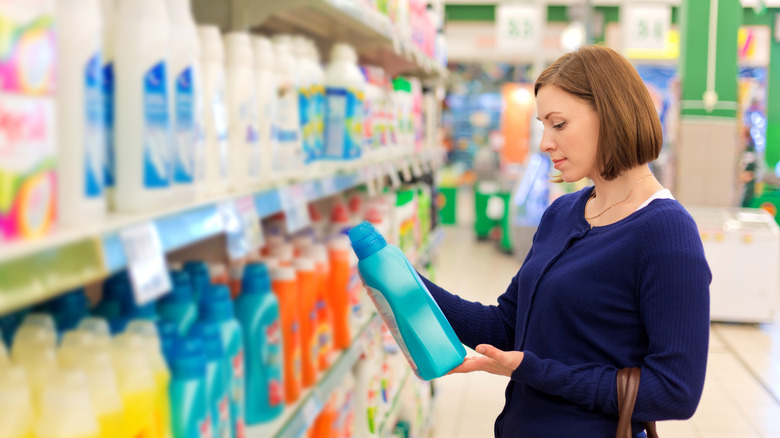How To Treat Acne Bumps On Your Booty Just In Time For Summer
Pimples and other blemishes can be unsightly, no matter where they appear on your body. Bum spots are not as bad as regular acne, but they can still make you feel self-conscious. However, those pesky pumps on your rear may not have anything to do with acne. Their causes range from folliculitis to eczema, keratosis pilaris, and contact dermatitis.
For example, folliculitis is characterized by swollen, red bumps around hair follicles on the chest, arms, buttocks, and other areas. These blemishes may be due to irritation, bacterial or yeast infections, inflammatory skin disorders, or certain chemicals. Similarly, boils tend to appear on the buttocks, armpits, and other body areas with hair. They can be due to folliculitis or occur as a standalone condition.
On the positive side, these common skin problems are often easier to treat than acne. In some cases, it may be enough to stop wearing leggings every day and apply topical ointments. What matters most is to address the root cause of your problem, whether it's inflammation, friction, or allergic reactions.
Change up your skincare routine
There's no one-size-fits-all solution for butt acne, but some products can ease your symptoms and boost skin health. For example, you may be able to get rid of folliculitis by applying over-the-counter creams and warm compresses for up to 20 minutes three to four times a day. The American Academy of Dermatology Association recommends wearing loose clothing, especially when it's hot outside, and washing your swimsuit after each use. But, as mentioned earlier, this skin condition may have bacterial causes. If your symptoms persist, you may need oral or topical antibiotics. Otherwise, you could use alpha-hydroxy acids or other peeling agents to prevent clogged pores, though the results may vary.
Another piece of advice comes from Lauren Zamborsky, a dermatology specialist and nurse practitioner. She suggests using acne washes with salicylic acid, a compound that exfoliates the skin. Alternatively, choose a formula with benzoyl peroxide, a topical medication that kills bacteria. In more severe cases, it may be worth trying a body washes with chlorhexidine or other antiseptic ingredients.
However, these products may or may not work, depending on what's causing the bumps on your booty. "There can be a lot of different causes of butt blemishes. It's often a bacterium, but it could also be something like yeast. It could even be viral," Zamborsky told the Cleveland Clinic. For instance, boils require a different treatment than folliculitis or keratosis pilaris, a skin condition characterized by keratin buildup in hair follicles.
Lifestyle changes can help, too
Sweating, friction, shaving, and prolonged sitting can all contribute to butt acne. For instance, leggings can trap heat and keep sweat close to your skin. This may lead to clogged pores and bacteria growth, resulting in folliculitis. Your best bet is to wear loose-fitting clothes, especially during exercise, and wash them after each use. Avoid underwear fabrics like nylon, polyester, and viscose to prevent skin irritation.
Zamborsky also advises against prolonged sitting. This habit prevents your skin from "breathing" and causes friction, which can lead to butt pimples. Stand up and move around every hour or so to mitigate the risks of sitting all day. Apart from that, take a quick shower immediately after exercise and exfoliate your skin two to three times per week. Keep your razor sharp and rinse it with warm water after each use, or opt for laser hair removal to prevent or reduce folliculitis.
Last but not least, consider switching to hypoallergenic laundry products. Traditional detergents contain chemicals that may cause allergic contact dermatitis, irritation, rashes, and other skin problems, according to 2014 research published in the journal Environmental Health Insights. Therefore, it makes sense to use a gentler formula designed for sensitive skin. If you make these changes and your symptoms persist, reach out to a dermatologist. In some cases, folliculitis and boils can lead to more serious conditions that require immediate treatment, such as antibiotics or abscess incision and drainage.

